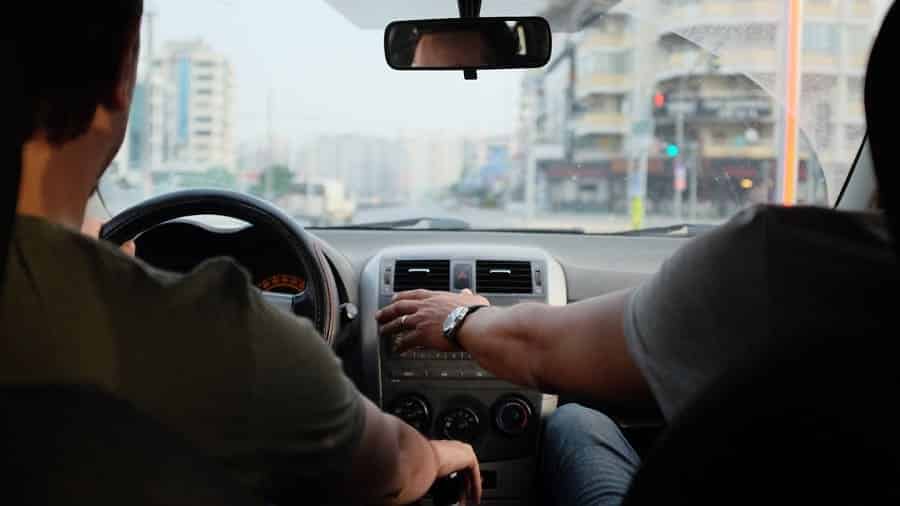Say you find yourself in a situation where you have hit a parked car. While the situation can certainly be embarrassing to a degree and may leave you frustrated, it is important to realize how serious the situation can quickly become, especially if you have left the scene of the accident.
When it comes to hitting a parked car, there is some key information that you will need to leave behind if you are unable to locate the owner of the vehicle that has been hit. That information includes your name, address, vehicle registration number, and insurance information. You will need to leave that information in a visible place for the owner of the car to find, such as under the car wiper or taped to the window.
If you happen to hit a parked car in a vehicle that you do not own, you will also need to leave the car owner’s name and their address. If you fail to leave this information, you may face a first-degree misdemeanor under Ohio law for leaving the scene of an accident.
With all that in mind, there is other key information you should know when it comes to different situations related to hitting a parked car in Ohio i.e. relevant laws and penalties. Below, we answer a few frequently asked questions.
Disclaimer: The following is not intended as legal advice. It is general information meant to inform. Please consult with a hit and run defense attorney in Ohio for legal advice.
What is the Law for Hitting a Parked Car in Ohio?
When it comes to hitting a parked car in Ohio, both state and local municipal codes will come into play.
At the state level, Section 4549.02 of the Ohio Revised Code lays out that in the case of a motor vehicle accident or collision with “persons or property on a public road or highway, the operator of the motor vehicle, having knowledge of the accident or collision, immediately shall stop the operator’s motor vehicle at the scene of the accident or collision.”
Under this section, drivers who have hit another vehicle are required to stop, remain at the scene of the accident, and share their name, address, vehicle registration number, and insurance information as discussed above.
Stopping after hitting a parked car and sharing or leaving your information is also required under Columbus’ Code of Ordinance’s as outlined in Chapter 2135. DOES INSURANCE COVER HIT AND RUN PARKED CAR?
Failure to provide your information if you have hit a parked car can be treated as a first-degree misdemeanor, meaning you can face penalties like:
- Up to six months in jail
- A fine of up to $1,000
- A driver’s license suspension for a minimum of six months up to three years
To read more about the potential penalties that hit and run charge may carry, see our post here.
Who is at Fault for Hitting an Illegally Parked car in Ohio?
Determining who is at fault for hitting an illegally parked car in Ohio will depend on the individual circumstances of the case. Most often, the driver who hits the parked car will be found at fault because they are the ones who hit the parked car.
In some instances, if a car that has been hit is found to have been illegally parked, the owner of the parked vehicle may also be at fault.
To further understand if you may be found at fault for hitting an illegally parked car, reach out to our hit and run defense attorney in Columbus, Ohio. He will be able to analyze the details of your case and explain possible next steps.
Is Ohio a No-Fault Accident State?
The long and short answer here is Ohio is not a no-fault state. Ohio is an at-fault state, meaning that the driver who is found at fault for an accident is the individual who will be held liable for any damages and/or injuries that occur.
In fact, Ohio state law requires that all drivers carry a minimum amount of bodily injury liability coverage of “$25,000 per person injured in any one accident and $50,000 for all persons injured in any one accident.”
Connect with a Hit and Run Defense Attorney in Columbus, Ohio
If you find yourself in a situation where you are facing charges of a hit and run in Columbus, Ohio, you should reach out to an experienced hit and run defense attorney. A traffic defense attorney should be able to look at the details of your case then help give you a feel for what to expect, potential defenses and mitigating factors, as well as in-court representation against the charges.
Consider calling a Columbus defense attorney from The Maher Law Firm, LLC today. Founder and experienced attorney, Colin Maher, has been regularly representing clients in the Columbus, Ohio area since 2013. He has a track record of success, routinely helping clients defense against traffic violations like speeding tickets, failure to control, marked lanes, reckless driving, DUI/OVI’s, hit and runs, and anything else for which you can receive a citation.
Connect with The Maher Law Firm today for a free phone consultation at 614-205-2208.








